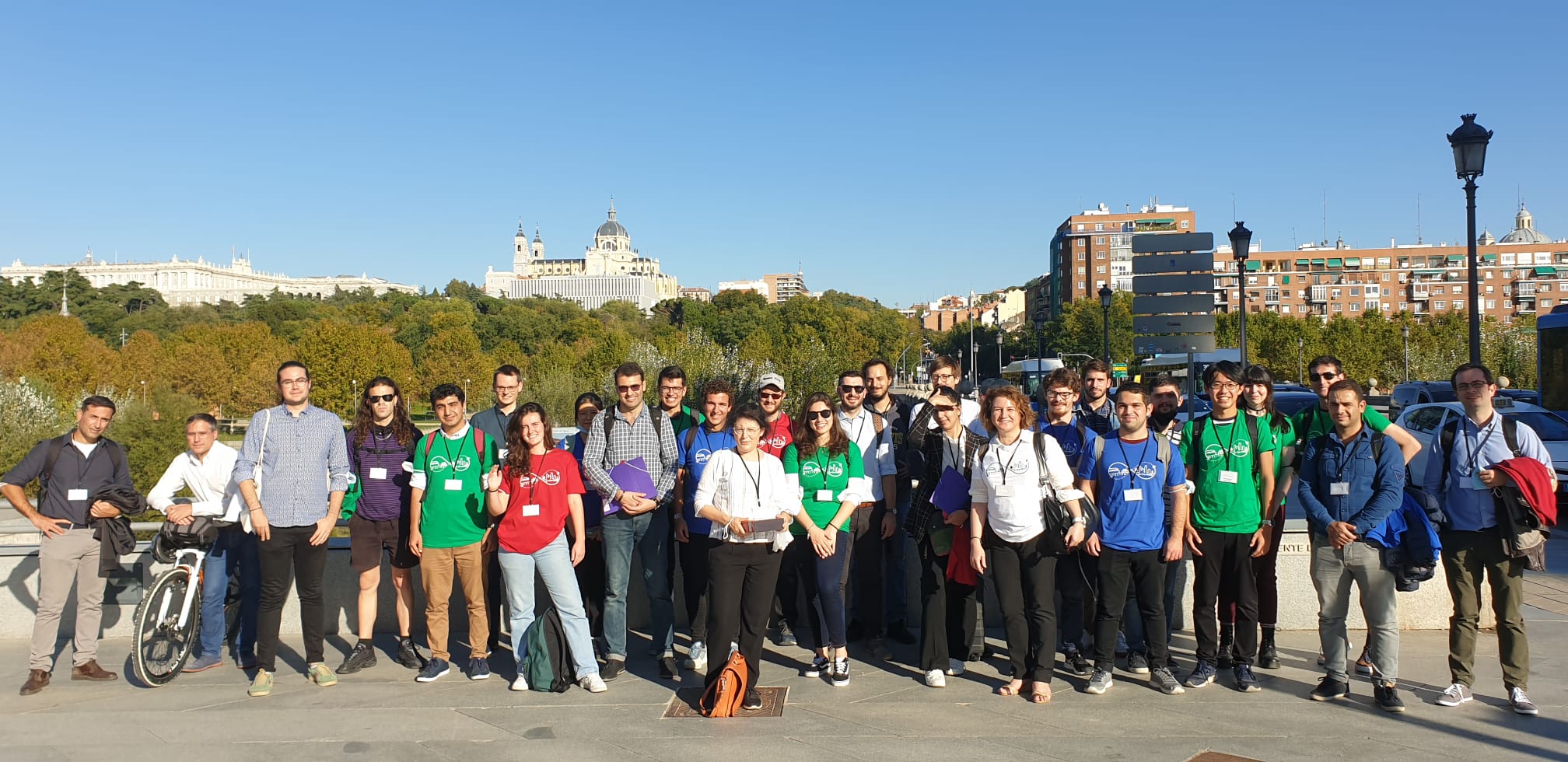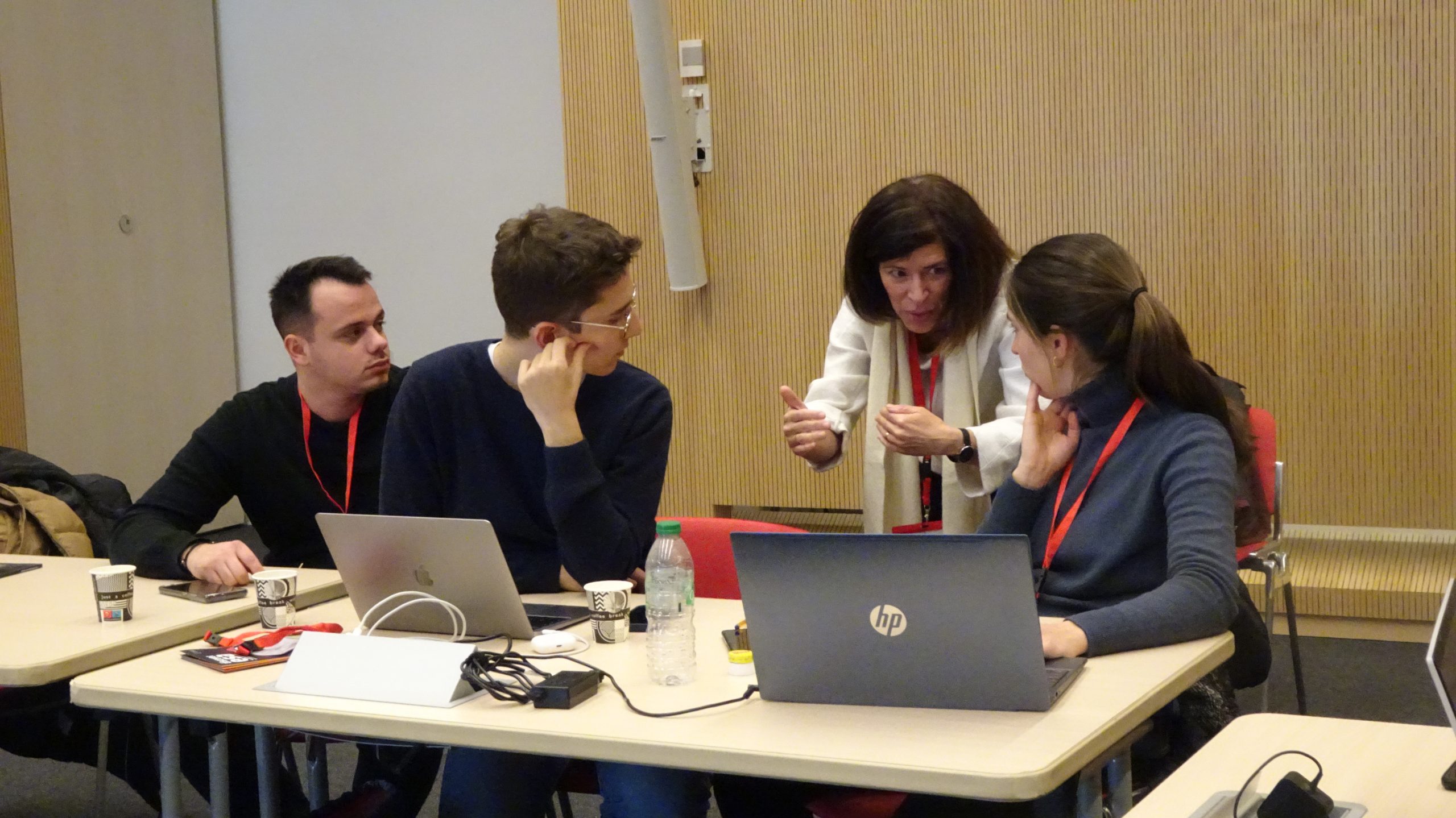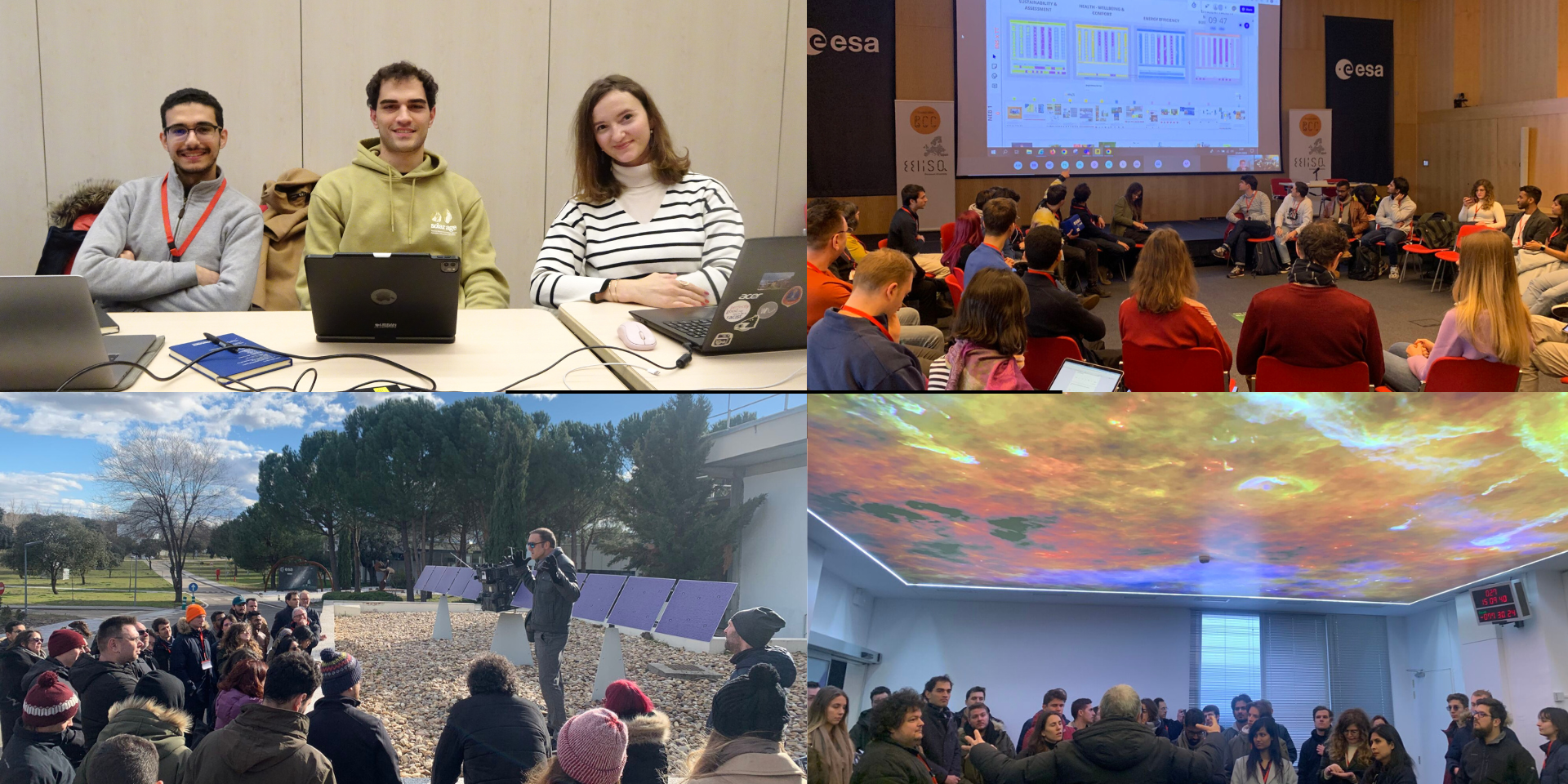Last January, 150 students from 13 European universities, together with more than 100 researchers and international experts, participated in the EELISA think tank on sustainable buildings, the largest event of its kind to date. This groundbreaking experience has been developed by the EELISA Community Sustainable Buildings, Cities and Communities (EELISA BCC) in collaboration with the European Space Agency (ESA) in Madrid, and the EELISA Communities: Circular and Regenerative Campus, Circular EELISA and EELISA Discovery. It also involved the participation of prestigious companies such as ARUP Group, the FMHOUSE consultancy, ACCIONA, SACYR, GBCE (Green Building Council of Spain), as well as associations such as IFMA Spain (International Facility Management Association- Chapter Spain), and ANERR (National Association of Rehabilitation and Reform Companies). For five days, 24 international teams worked together (online and on-site) at the ESA headquarters to generate fresh and high-impact ideas on energy rehabilitation with the highest standards of sustainability (social, economic, and environmental). A pioneering initiative that will be followed by a repository of videos, MOOCs, academic articles, didactic components, and the emergence of new projects in the short and medium term. But overall, this macro lab of ideas has offered a global vision of sustainability and a lifetime experience to students and future professionals.
The EELISA think tank on sustainable buildings is just one of the 23 activity proposals selected for funding – and now materializing with a high impact- by the first EELISA Call for Joint inter-institutional Activities in Communities. This is a call for proposals with a budget of over 300.000 euros that has brought mobility, innovation, multidisciplinarity, and international teamwork within the Alliance to the next level, and which will be followed by a second call in the next few months.

EELISA Communities are the core of the EELISA Alliance and real game-changers that are transforming traditional learning and research methods into processes that go beyond classrooms and labs to have real societal impact. They are conceived as diverse, ever-expanding, and mission-driven working groups that bring together students, teachers, and researchers from all partner universities with prestigious professionals, grassroots organizations, citizens, private companies, and public institutions to find innovative solutions to real-world challenges connected to the Sustainable Development Goals.
International seminars on urban mobility, gamification events to enhance knowledge and awareness of the circular economy, activities to boost sustainability transformation, or an initiative to join forces between BAUHAUS initiatives across Europe are some of the activities developed by the current 44 EELISA Communities accesible via the EELISA Community Platform.
All of them offer the possibility to earn EELISA Credentials – the “academic materialization” of the learner’s involvement in their innovative and transformative learning experiences. A passport certified across all EELISA institutions, in which learners collect the evidence (“badges”) of their contribution to challenge-solving processes. Over 2.000 students have already enrolled in this unique recognition system that aims to have an impact beyond the academic field to become a benchmark for public institutions, companies, and civil society organizations when looking for committed professionals ready to transform knowledge into action.
This is just the beginning of the EELISA transformative process and, as the collaboration with the European Space Agency has proved, “not even the sky is the limit”.
⇒ Check some of the upcoming activities organized by EELISA Communities that will impact your world:
- Course: Smarter healthcare for smarter cities
- Spring school: Ethos and Tekné for AI researchers
- Seasonal School: Management of Innovation and Common Good
- Contest: AI4Gov Start-Up
- Contest: IDCAR2023 Competition on Detection and Recognition of Greek Letters on Papyri
- Course: Fusion of Satellite Image Time Series and Multimodal Data for Urban and Forestry Sustainable Development


